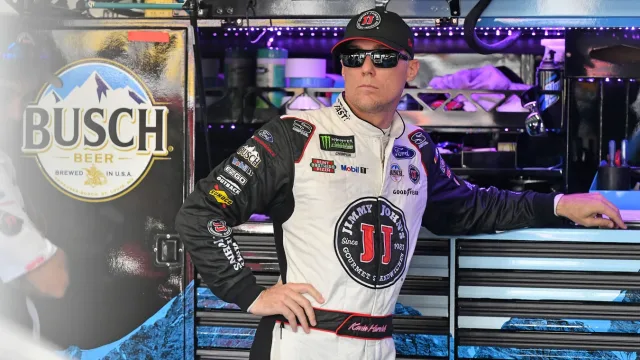Kevin Harvick’s Montreal Busch Series win in 2007 became one of NASCAR’s most controversial outcomes after a dramatic sequence between Robby Gordon and Marcos Ambrose at Circuit Gilles Villeneuve led to a post-race disqualification and reshuffled results. The finish, echoing the chaos of past legendary races like the 1979 Daytona 500, left competitors and fans reeling as Harvick was declared the winner, despite crossing the line behind Gordon.
The 2007 race at Montreal mirrored the infamous Daytona 500 where a late collision allowed Richard Petty to snatch victory. In Canada, Robby Gordon and Marcos Ambrose clashed fiercely on the track, setting the stage for confusion and heated disputes. Ambrose initially spun Gordon from the lead, only for Gordon to retaliate and spin Ambrose while the caution flag was deployed. Even after these incidents, Gordon rolled to a green flag restart from second place, disregarding NASCAR’s instruction to start much further back in thirteenth position.
Controversial Events Unfold on the Montreal Track
The sequence of spins and the restart chaos set off a wave of frustration among officials, drivers, and fans. Gordon continued to lead the closing laps, ignoring the fact that NASCAR had already informed his crew chief that any result would be void. He crossed the finish line first and celebrated with smoke-filled burnouts beside Kevin Harvick, both drivers acting as though they had secured victory. However, as the dust settled, only Harvick would be recognized as the official winner of the historic event.

After the race, emotions ran high. Robby Gordon refused to accept NASCAR’s ruling, arguing passionately that he deserved the win:
“I did the most laps, I was the first car to complete them, I won the race,”
—Robby Gordon, Driver
Despite NASCAR’s explanation, Gordon continued to question the penalty, insisting:
“You always go back to your position if you get spun out, and [Ambrose] spun me under the caution. They told me originally to go back to second place, and I went back to second place. Then halfway around the last [caution] lap, they said to go back to 13th place or 14th place, something like that. I was never running 13th or 14th, so I don’t know what to say.”
—Robby Gordon, Driver
Rulebook Explanations and Fallout After the Race
Following the checkered flag at Circuit Gilles Villeneuve, officials ushered Gordon into the NASCAR hauler to clarify the post-race infraction. In a particularly pointed gesture, they handed him the rulebook as an explanation and reference on the regulation he had violated. Gordon left the meeting visibly dissatisfied, returning to his hauler with further frustrations.
The final results saw Kevin Harvick named the victor of the inaugural Montreal Busch Series event, with Patrick Carpentier in second, followed by Max Papis, Ron Fellows, and Stephen Leicht. Marcos Ambrose, unable to reclaim his lead after being spun, finished in seventh place. Ambrose later shared his frustration and acceptance of how things unfolded, remaining composed despite the heated circumstances:
“I knew that he was going to try and hit me, and we were talking whether we should pull over and let him pass,”
—Marcos Ambrose, Driver
“But, you know, I’ve got two laps to go and I’m trying to win the race. If somebody is going to take me out, they’re going to take me out. I’m disappointed. I promised myself that I wouldn’t get mad.”
—Marcos Ambrose, Driver
Aftermath and Significance of the Decision
The repercussions for Gordon did not end with losing the win. NASCAR suspended him from the following week’s Cup race at Pocono, citing his “tantrum” and multiple violations as factors in the penalty. The decision underscored the authority of the sanctioning body and set a strong precedent for sportsmanship and following official directives.
Kevin Harvick’s Montreal Busch Series win remains memorable for the confusion that surrounded the finish line celebrations, the challenge of applying NASCAR’s complex rulebook, and the intensity among drivers who believed victory had slipped unjustly from their grasp. The episode solidified the Circuit Gilles Villeneuve event as a landmark moment in racing, shaping how officials, competitors, and fans viewed NASCAR enforcement, fair play, and the unpredictable nature of motorsport outcomes.
